April 14, 2025 | 16:49 GMT +7
April 14, 2025 | 16:49 GMT +7
Hotline: 0913.378.918
April 14, 2025 | 16:49 GMT +7
Hotline: 0913.378.918
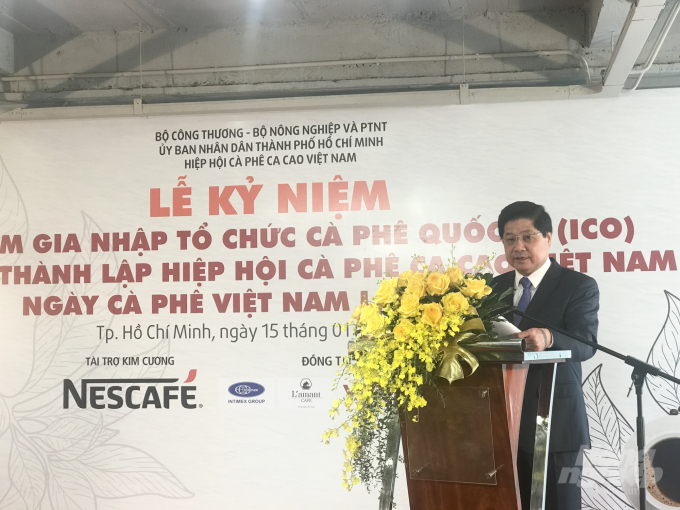
Deputy Minister Le Quoc Doanh adjusts the development of the coffee industry over the past 30 years. Photo Thanh Son.
Nguyen Nam Hai, vice president of the Vietnam Coffee and Cocoa Association (VICOFA) said as of the end of December, farmers in the Central Highlands provinces harvested about 70 per cent of coffee in the crop year 2020-21.
Nam also said coffee output would decrease by 10-15 per cent compared to the crop year 2019-20 as the lower coffee prices made many coffee growers reduce their investment and care on the trees, resulting in reduced productivity.
He added many coffee areas have been converted to fruit trees while they put too many intercropping of trees such as macadamia, avocado, and pepper in the coffee area that made number of old coffee trees to decrease by 20-30 per cent. Nam said: “The coffee output will continue to decline in the coming years.”
At the same time, the coffee production in the same crop year was also expected to decline globally. Even the International Coffee Organization (ICO) has not released the expected number of coffee crop year 2020-21 worldwide while the US Department of Agriculture (USDA) has reduced its forecast for global coffee supply from October 2020 to September 2021 to 165.4 million bags.
According to the General Department of Customs, in 2020 coffee export decreased in both volume and value. Total coffee export in 2020 is 1,565 million tonnes, down 5.6 per cent compared to 2019, reaching a value of US$2.741 billion, of 4.2 per cent lower than 2019.
Experts in the coffee industry also said there was a lot of challenges for the export this year with the shortage of containers for export.
Do Ha Nam, chairman and general director of Intimex Group, said: “Lack of containers for coffee export is very stressful, and freight rates are likely to increase in the near future. This will significantly affect coffee exports.”
In the world, the sharp increase in coffee production area and output in Brazil, the largest coffee producer in the world, caused significant difficulties for Vietnam's coffee exports. The USDA forecasts Brazilian coffee production from July 2020 to June 2021 will increase by 14.5 per cent to a record 67.9 million bags. Brazil's National Food Supply Company (Conab).
forecasts that the country's coffee output will reach about 63.08 million bags, up 2.4 per cent compared to its previous forecast. CONAB said in 2020, the coffee area for harvest in Brazil was of 1.88 million hectares, an increase of 3.9 per cent compared to 2019.
Dealing with the situation, together with boosting the export and taking advantages from effective implementation of CPTPP, EVFTA, UKVFTA, VICOFA considered enhancing the domestic consumption was a way to go.
In the world, contrary to concerns about a decline in global coffee consumption due to lock-down in the world, instant coffee processing companies such as Nestlé, Folgers and Dunkin reported better instant coffee sales in 2020. Demand for instant coffee consumption at home will continue to increase after the pandemic, predicted Rabobank.
In Vietnam, according to VICOFA, the amount of coffee consumed in the domestic market was increasing and currently accounts for over 10 per cent of the national coffee output in recent years. The increase was thanks to the presence of many Vietnamese brands and international supply chains hat attract the customers.
This year, VICOFA will continue to implement the program "Promote domestic coffee consumption of Vietnam" funded from the special fund of ICO to increase the rate of domestic coffee consumption in Vietnam, especially in roasted and instant coffee.
By 2023, Vietnam strives to increase the consumption of coffee in the domestic market to 3 kg per person per year from the rate of 1.68 kg per person per year in 2009.
In the 30th anniversary day of joining the International Coffee Organization (ICO) and the 4th Vietnam Coffee Day in HCM City on January 15, deputy minister of Agriculture and Rural Development Le Quoc Doanh emphasised that, over the past 30 years, Vietnam's coffee industry has made great progress.
Doanh mentioned Vietnam's coffee output only accounted for 1.5 per cent of the world coffee output in 1990 but now it has become the second largest coffee producer in terms of output in the world. In 2020, Vietnam's coffee output was estimated at 1.74 million tonnes with the yield of 2.73 tonnes per ha, more than three times higher than the average yield of the world.
In the context of complicated developments in the COVID-19 with a broken supply chain, coffee export of Vietnam still reached nearly $ 3 billion.
Doanh said in the past 30 years, Vietnam has shown its role and responsibility as an official member of the ICO and proved the world that the local coffee productivity was of the highest group in the world.
Author: Thanh Son. Translated by Minh Van.
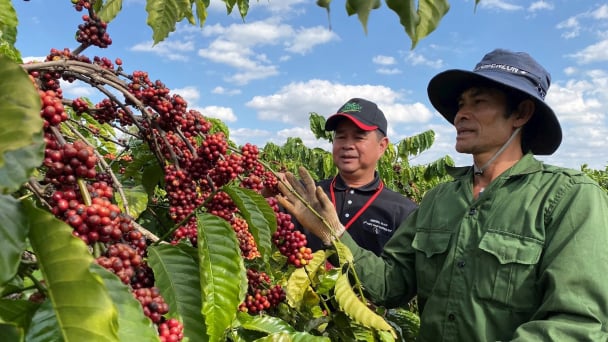
(VAN) Businesses emphasize fairness and equality when integrating social factors into their sustainable development strategies.
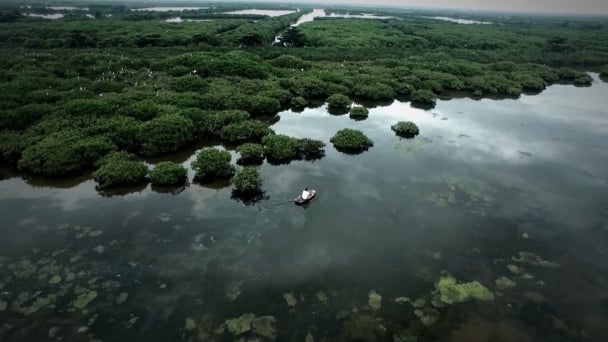
(VAN) French organizations and enterprises propose that Thai Binh province provide potential and long-term cooperation contents related to climate change response and green industrial development.
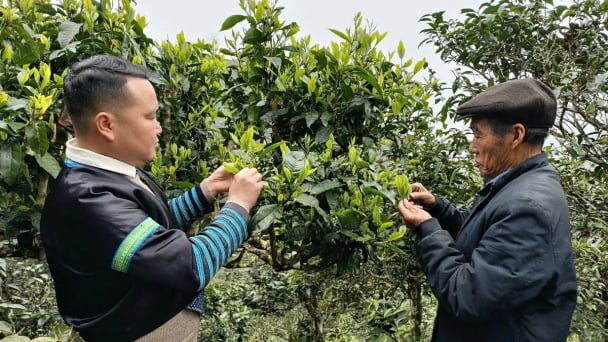
(VAN) Shan Tuyet tea is considered a 'heavenly treasure'. The H'mong people allow the tea to grow naturally, adhering to organic production principles, with the aim of exporting the product.
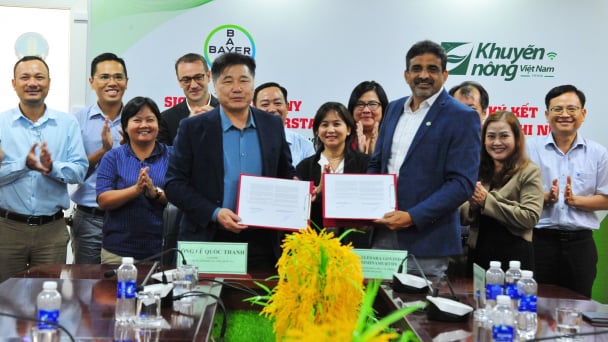
(VAN) Bayer Vietnam and the National Agricultural Extension Center have signed a partnership agreement to expand the development of effective and safe farming models for rice, durian, and coffee.
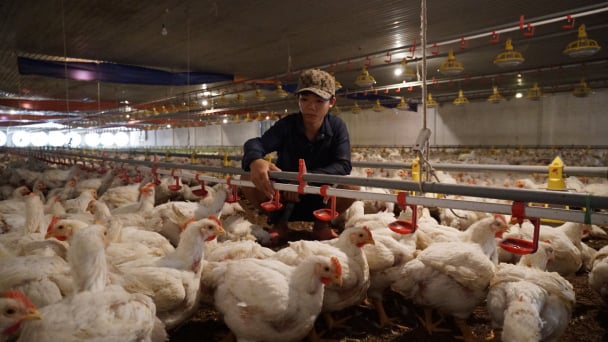
(VAN) Tay Ninh province possesses all the favorable conditions, from natural advantages to geographic location and social harmony, to drive economic development, particularly in attracting investment and advancing modern livestock farming.
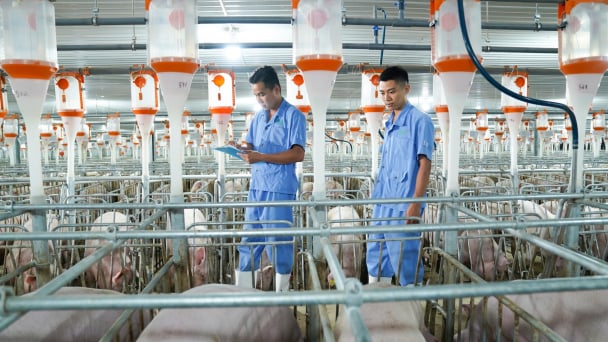
(VAN) Notably, every link in BAF's entire closed livestock value chain Feed - Farm - Food has received international certification.
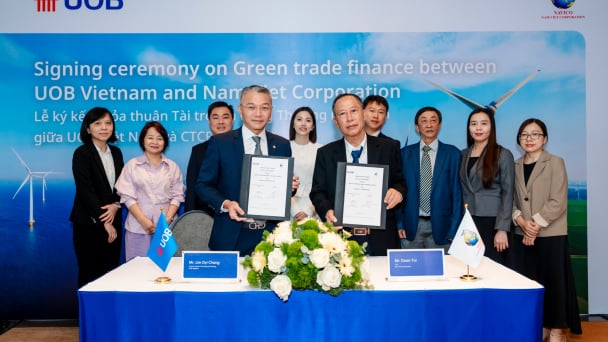
(VAN) UOB Vietnam has recently signed a green credit agreement with NAVICO to develop sustainable aquaculture that meets international standards.